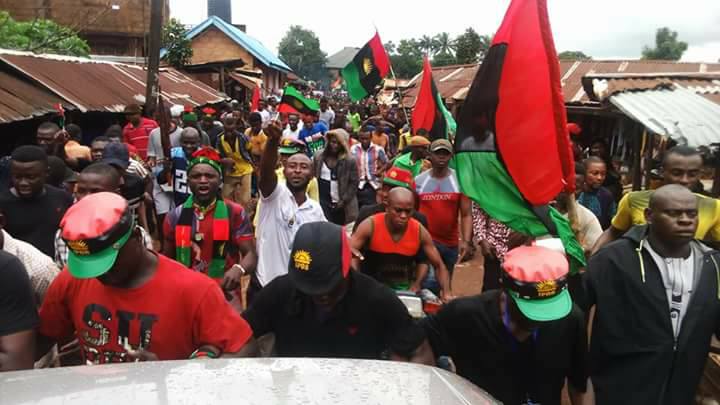NEWS XTRA

IPOB SLAMS SUPREME COURT OVER NNAMDI KANU RULING, CALLS JUDGMENT “TYRANNY DISGUISED AS LAW”
IPOB Condemns Supreme Court Decision Reversing Nnamdi Kanu’s Discharge
The Indigenous People of Biafra (IPOB) has strongly criticised the Supreme Court of Nigeria for overturning the discharge of its leader, Nnamdi Kanu, from terrorism charges.
In a statement on Friday signed by Barrister Onyedikachi Ifedi, Director of Legal Affairs & Global Communications, IPOB accused the apex court of undermining the Constitution and enabling “executive lawlessness.”
The controversy stems from a previous ruling by the Court of Appeal, which struck out the terrorism case against Kanu, declaring his arrest and extradition from Kenya illegal under both Nigerian and international law. However, following an appeal by the federal government, the Supreme Court ruled that how Kanu was brought back to Nigeria should not stop his trial, setting aside the earlier judgment and ordering the continuation of proceedings.
IPOB described the Supreme Court’s decision as “a textbook assault on constitutional democracy,” arguing that it violates non-derogable rights, the constitutional ban on double jeopardy, and international treaty obligations under the ICCPR and African Charter.
“When the highest court licenses state abduction, suspends non-derogable rights, and voids double jeopardy, it commits constitutional hara-kiri. This judgment is not law; it is tyranny disguised as jurisprudence,” the statement read.
The group also faulted the court’s “national security” justification, calling it an illegal invention with no constitutional basis. IPOB warned that by endorsing such actions, Nigeria’s judiciary risks being “isolated among civilized nations.”
IPOB demanded the immediate release of Nnamdi Kanu, the reversal of the Supreme Court’s ruling, and urged the International Criminal Court (ICC) to investigate Nigerian officials for alleged crimes against humanity, particularly abduction and denial of fair trial.
The ruling has reignited debates on the rule of law, human rights, and the limits of executive power in Nigeria’s justice system.
"This represents a significant development in our ongoing coverage of current events."— Editorial Board









